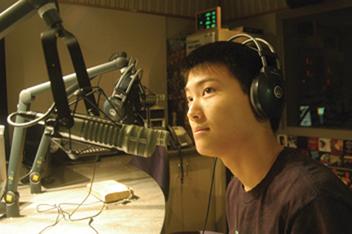 People naturally tune out events that happen often. In many instances it’s a relatively benign matter: a student ignores his parents who incessantly ask him to pick up his clothes from the floor. However, it becomes dangerous when the public becomes desensitized toward news, even if that news is filled with seemingly endless waves of violence and negativity.
People naturally tune out events that happen often. In many instances it’s a relatively benign matter: a student ignores his parents who incessantly ask him to pick up his clothes from the floor. However, it becomes dangerous when the public becomes desensitized toward news, even if that news is filled with seemingly endless waves of violence and negativity.
News of the shooting outside the Empire State Building erupted across several media outlets the morning of Aug. 24. Apparently, a gunman had shot down a co-worker before being killed by police officers in the ensuing gunfight. Nine pedestrians suffered nonfatal wounds as a result of the clash.
When I returned from school that afternoon, I logged in to Twitter, expecting an outraged or animated response to the shooting on my feed. But I was surprised to see only three tweets related to the New York shooting—from the New York Times, the Wall Street Journal and CNN.
The public reaction to the shooting showed a steady decline in interest from the Aurora shooting in July, when a gunman opened fire on an audience watching the premiere of “The Dark Knight Rises,” killing 12 and injuring 58. I clearly remember social media sites lighting up with statuses expressing prayers for victims and dumbfounded tweets. A study by Pew Research later showed that about 73 percent of the public said they followed the story very closely or fairly closely.
Just 16 days later, another high-profile mass shooting took place at a Sikh temple in Wisconsin, where six were killed and four were injured. On Twitter, I saw a couple tweets referencing the shooting, but nowhere near the number after the Aurora shooting.
Looking back, I probably shouldn’t have been surprised to see such a small, if not nonexistent, reaction to the New York shooting from my peers on Twitter. It’s relatively apparent over the last two months and over three major shootings that most students have tuned out these major news events like they would tune out their parents asking them to clean their rooms.
Of course, analyzing my Twitter feed is admittedly not the most scientific of study methods, but the conclusions are straightforward: people have become increasingly desensitized to these high-profile shootings.
It might be due to the start of the school year and less attention being paid to news, it might be due to the bombardment of bad news in the media or it might be due to a failure on media’s part to put a human face on the violence. Whatever the reason, tuning out these major acts of violence is potentially dangerous for society as a whole.
Society doesn’t undergo dramatic policy changes unless a large portion of its constituents demands it. The gun control laws and attempts to address the mass shootings that have been so prevalent in the last several months will have no hope of success unless the issue is one the public starts caring deeply about. We can’t care deeply about something we don’t pay attention to.
A study by the Brady Campaign to Prevent Gun Violence showed that the media reports on over 20 mass shootings per year, defined as having three or more casualties. In 2012 alone, there have been 26 mass shootings already, and we still have more than three months to go. If the currently desensitized public no longer reacts strongly to these shootings, it’s unlikely that the status quo will change.
The recent upturn in mass shootings may foreshadow an increase in related violence in the future. If we hope to address this problem any time soon, we first need to make sure the public stops tuning out the problem itself.




























![Keep the New Gloves: Fighter Safety Is Non-Negotiable [opinion]](https://hilite.org/wp-content/uploads/2024/12/ufcglovescolumncover-1200x471.png)
















































![Review: “We Live in Time” leaves you wanting more [MUSE]](https://hilite.org/wp-content/uploads/2024/12/IMG_6358.jpg)
![Review: The premise of "Culinary Class Wars" is refreshingly unique and deserving of more attention [MUSE]](https://hilite.org/wp-content/uploads/2024/12/MUSE-class-wars-cover-2.png)
![Introducing: "The Muses Who Stole Christmas," a collection of reviews for you to follow through winter [MUSE]](https://hilite.org/wp-content/uploads/2024/12/winter-muse-4.gif)
![Review: "Meet Me Next Christmas" is a cheesy and predictable watch, but it was worth every minute [MUSE]](https://hilite.org/wp-content/uploads/2024/11/AAAAQVfRG2gwEuLhXTGm3856HuX2MTNs31Ok7fGgIVCoZbyeugVs1F4DZs-DgP0XadTDrnXHlbQo4DerjRXand9H1JKPM06cENmLl2RsINud2DMqIHzpXFS2n4zOkL3dr5m5i0nIVb3Cu3ataT_W2zGeDAJNd_E-1200x884.jpg)
![Review: "Gilmore Girls", the perfect fall show [MUSE]](https://hilite.org/wp-content/uploads/2024/11/gilmore-girls.png)
![Review in Print: Maripaz Villar brings a delightfully unique style to the world of WEBTOON [MUSE]](https://hilite.org/wp-content/uploads/2023/12/maripazcover-1200x960.jpg)
![Review: “The Sword of Kaigen” is a masterpiece [MUSE]](https://hilite.org/wp-content/uploads/2023/11/Screenshot-2023-11-26-201051.png)
![Review: Gateron Oil Kings, great linear switches, okay price [MUSE]](https://hilite.org/wp-content/uploads/2023/11/Screenshot-2023-11-26-200553.png)
![Review: “A Haunting in Venice” is a significant improvement from other Agatha Christie adaptations [MUSE]](https://hilite.org/wp-content/uploads/2023/11/e7ee2938a6d422669771bce6d8088521.jpg)
![Review: A Thanksgiving story from elementary school, still just as interesting [MUSE]](https://hilite.org/wp-content/uploads/2023/11/Screenshot-2023-11-26-195514-987x1200.png)
![Review: "When I Fly Towards You", cute, uplifting youth drama [MUSE]](https://hilite.org/wp-content/uploads/2023/09/When-I-Fly-Towards-You-Chinese-drama.png)
![Postcards from Muse: Hawaii Travel Diary [MUSE]](https://hilite.org/wp-content/uploads/2023/09/My-project-1-1200x1200.jpg)
![Review: "Ladybug & Cat Noir: The Movie," departure from original show [MUSE]](https://hilite.org/wp-content/uploads/2023/09/Ladybug__Cat_Noir_-_The_Movie_poster.jpg)
![Review in Print: "Hidden Love" is the cute, uplifting drama everyone needs [MUSE]](https://hilite.org/wp-content/uploads/2023/09/hiddenlovecover-e1693597208225-1030x1200.png)
![Review in Print: "Heartstopper" is the heartwarming queer romance we all need [MUSE]](https://hilite.org/wp-content/uploads/2023/08/museheartstoppercover-1200x654.png)




